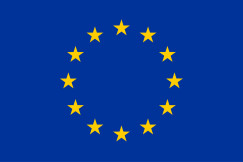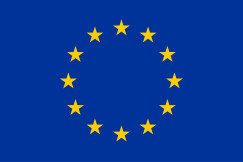Legislation
27 March 2025
Food Information to Consumers
Legislation
27 March 2025
1. Healthy, balanced and sustainable diets for all European consumers
2. Prevention and reduction of food loss and waste
3. A climate - neutral food chain in Europe by 2050
+4 more
Login / create an account to be able to react
-
74

Regulation (EU) No 1169/2011, also known as the Food Information to Consumers (FIC) regulation, governs the labelling of food products to ensure consumers' right to information. It establishes general principles, requirements, and responsibilities for food labelling.
The regulation provides clearer and harmonised presentation of allergens for prepacked foods, nutrition information for the majority of prepacked processed foods, mandatory origin information for fresh meat from pigs, sheep, goats, and poultry, and consistent labelling requirements for online, distance selling, and in-store purchases.
Editorial team
European Commission - DG SANTE
Topics
EU-27
EU Institutions
-
CoC aspirational objectives
-
-
1. Healthy, balanced and sustainable diets for all European consumers
-
2. Prevention and reduction of food loss and waste
-
3. A climate - neutral food chain in Europe by 2050
-
4. An optimised circular and resource-efficient food chain in Europe
-
5. Sustained, inclusive and sustainable economic growth, employment and decent work for all
-
6. Sustainable value creation in the European food supply chain through partnership
-
7. Sustainable sourcing in food supply chains
-
Share
The Food Information to Consumers (FIC) regulation applies to all businesses involved in the food chain and covers all foods intended for final consumption, including those supplied to mass caterers. The responsibility for providing accurate information lies with the manufacturer marketing the food under their name, or with the importer if the manufacturer is based outside the EU. Certain information must always be included, such as the product name, ingredient list, net quantity, use-by date, instructions for use when necessary, the operator’s name and address, and a nutrition declaration. The country of origin must be indicated if its omission could mislead consumers, with specific EU rules applying to foods like meat, honey, fruit, vegetables, olive oil, fish, and beef products.
Mandatory food information must be provided at no extra cost to consumers purchasing food via distance selling. Drinks with an alcohol content above 1.2% must display their actual alcoholic strength, and certain foods require additional labelling, such as those containing sweeteners, ammonium salts, or high caffeine levels. The net quantity of food and liquids must be stated in standard units such as litres, millilitres, kilograms, or grams. Some foods, including herbs, spices, flavourings, and herbal teas, are exempt from the mandatory nutrition declaration, while others like fresh fruit and vegetables, carbonated water, vinegars, and some dairy products do not require an ingredient list. Food information must not mislead consumers or falsely suggest special characteristics or effects. Labels must be clear, accurate, and easy to understand.
The regulation has been in force since 13 December 2014, with specific provisions introduced later, including mandatory nutrition declarations from 13 December 2016.
Related regulations:
- Commission notice on the application of the provisions of Article 26(3).
- Commission notice on questions and answers on the application of Regulation (EU) No 1169/2011.
- Commission Implementing Regulation (EU) 2018/775 laying down rules for the application of Article 26(3), as regards the rules for indicating the country of origin or place of provenance of the primary ingredient of a food.
- Regulation (EU) No 1308/2013 establishing a common organisation of the markets in agricultural products.
- Regulation (EU) No 1379/2013 on the common organisation of the markets in fishery and aquaculture products.
- Council Directive 2001/110/EC relating to honey.
- Regulation (EC) No 1760/2000 establishing a system for the identification and registration of bovine animals and regarding the labelling of beef and beef products.
Comments (0)
See also
De Minimis Regulation
- Categories
- 2. Prevention and reduction of food loss and waste 3. A climate - neutral food chain in Europe by 2050 4. An optimised circular and resource-efficient food chain in Europe +3 more
Regulation on Renewable Energy Financing mechanism
- Categories
- 2. Prevention and reduction of food loss and waste 3. A climate - neutral food chain in Europe by 2050 4. An optimised circular and resource-efficient food chain in Europe +3 more
Regulation on aid compatible with the internal markets
- Categories
- 2. Prevention and reduction of food loss and waste 3. A climate - neutral food chain in Europe by 2050 4. An optimised circular and resource-efficient food chain in Europe +3 more




